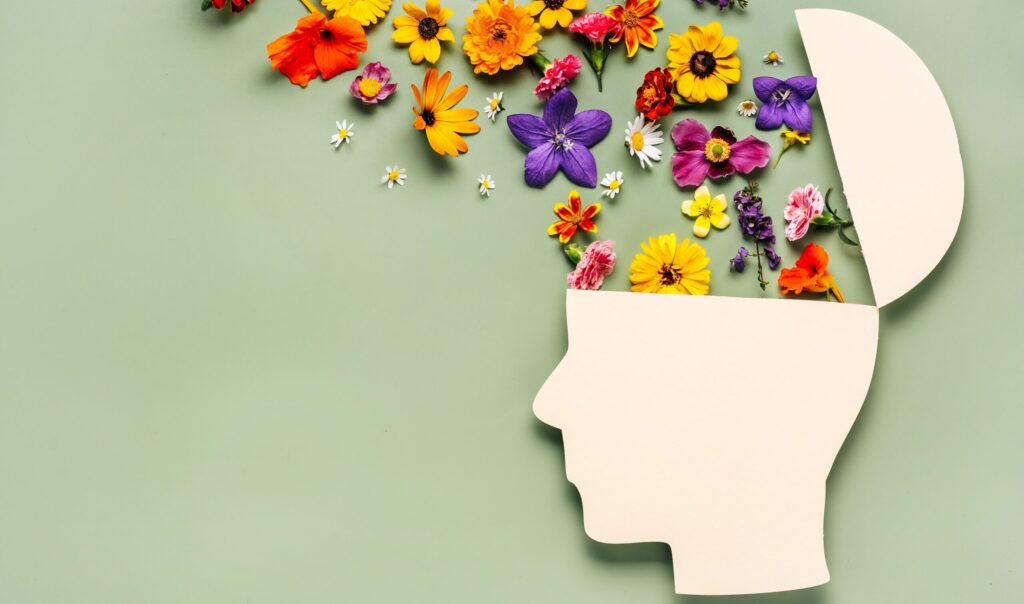
We’ve all heard the saying, “you are what you eat” — and when it comes to mental health, this couldn’t be more accurate. The food we eat doesn’t just fuel our bodies; it also plays a major role in how we feel emotionally and mentally. Nutrient-rich meals can help reduce anxiety, improve focus, and boost mood by supporting brain chemicals like serotonin and dopamine.
How Nutrition Affects Mental Health
What you eat directly influences your brain function and emotional well-being. Nutrients like omega-3 fatty acids, B vitamins, and antioxidants support brain health and help regulate mood. Poor nutrition, on the other hand, can increase the risk of anxiety, depression, and fatigue. A balanced diet is one of the easiest ways to care for your mental health daily.
Simple Meals to Boost Mental Health
Mental health can be greatly improved by the foods you eat. These simple, nutritious meals combine brain-boosting ingredients that help enhance mood, reduce stress, and support overall mental clarity. Below are easy recipes packed with vitamins, healthy fats, and antioxidants to nourish both body and mind.
Oatmeal with Bananas and Walnuts
Why it works:
Oats are rich in fiber and help stabilize blood sugar levels, preventing mood swings. Bananas are packed with vitamin B6, which helps produce serotonin—a “feel good” hormone. Walnuts add omega-3 fatty acids, which are great for brain health.How to make:
- ½ cup oats
- 1 sliced banana
- A handful of walnuts
- Dash of cinnamon
- Optional: drizzle of honey or almond butter
Leafy Greens & Quinoa Salad with Avocado
Why it works:
Leafy greens like spinach or kale are high in folate, which helps fight depression. Quinoa provides protein and magnesium, which supports relaxation. Avocados contain healthy fats and vitamin E, both essential for brain function.Ingredients:
- 1 cup cooked quinoa
- 1 cup spinach or kale
- ½ avocado, sliced
- Cherry tomatoes, olive oil, lemon juice, salt & pepper to taste
Grilled Salmon with Sweet Potatoes
Why it works:
Salmon is one of the best sources of omega-3s, which can improve mood and reduce anxiety. Sweet potatoes contain complex carbs that keep your energy levels stable and your mind focused.How to make:
- Grill a salmon fillet with lemon and herbs
- Bake sweet potato slices with olive oil and paprika
- Serve with a side of steamed broccoli or green beans
Eggs on Whole Grain Toast with Spinach
Why it works:
Eggs are a great source of vitamin D and choline, which boost brain health. Whole grains help regulate blood sugar, and spinach adds iron and folic acid—key nutrients for mental clarity and calmness.Quick recipe:
- 2 eggs (boiled, scrambled, or poached)
- 1 slice whole grain toast
- A handful of sautéed spinach with garlic
Greek Yogurt with Berries and Dark Chocolate
Why it works:
Greek yogurt is high in probiotics, which support gut health—and the gut is closely connected to your brain! Berries are full of antioxidants, and dark chocolate boosts endorphin levels.Simple prep:
- 1 cup plain Greek yogurt
- A handful of blueberries or strawberries
- 1 square of dark chocolate, shaved or chopped
- Sprinkle of chia or flax seeds (optional)
How to Stick to a Routine for Better Mental Health
Mental health greatly benefits from having a consistent routine, but sticking to one can sometimes be challenging. By using simple strategies, you can create lasting habits that provide structure, reduce stress, and enhance your overall well-being.
Set Clear, Realistic Goals
Define what you want to achieve with your routine. Start small and set achievable goals to avoid feeling overwhelmed, making it easier to stay consistent.
Create a Schedule
Plan your day or week in advance, allocating specific times for your routine activities. Having a set time helps build a habit and reduces decision fatigue.
Start with Small Steps
Begin by incorporating one or two new habits at a time. Gradually build on them to avoid burnout and increase the chances of long-term success.
Use Reminders and Alarms
Use phone alarms, sticky notes, or apps to remind you of your routine tasks. These prompts help keep you on track, especially in the beginning.
Eliminate Distractions
Identify what commonly pulls your focus away and minimize those distractions during your routine. This helps maintain concentration and efficiency.
Track Your Progress
Keep a journal or use an app to log your daily routine. Seeing your progress can motivate you to continue and help you identify areas for improvement.
Be Flexible and Patient
Understand that life happens—sometimes you’ll miss a day or need to adjust. Don’t be too hard on yourself; consistency over time is what matters most.
Conclusion / Takeaway
Your mental health is deeply connected to the food you eat. By choosing simple, nutrient-rich meals, you’re not only nourishing your body but also giving your brain the support it needs to function at its best. Making small changes in your daily meals can lead to big improvements in your mood, focus, and overall well-being.
https://healthboost360.com/6-evening-habits-that-help-you-sleep-better-naturally/Start by adding just one brain-boosting meal to your routine this week and notice how you feel. And while you’re taking care of your mind during the day, don’t forget to unwind properly at night! Check out our blog on 6 Evening Habits That Help You Sleep Better Naturally for tips to improve your sleep and mental clarity.
Have you tried any of these meals? Do you have your own go-to foods that help boost your mood or focus? Share your experiences and tips in the comments below — your story might help someone else!